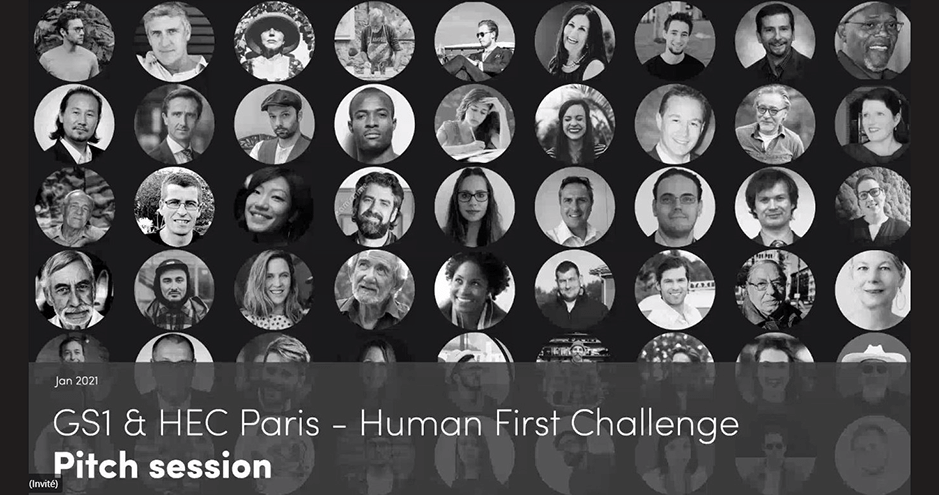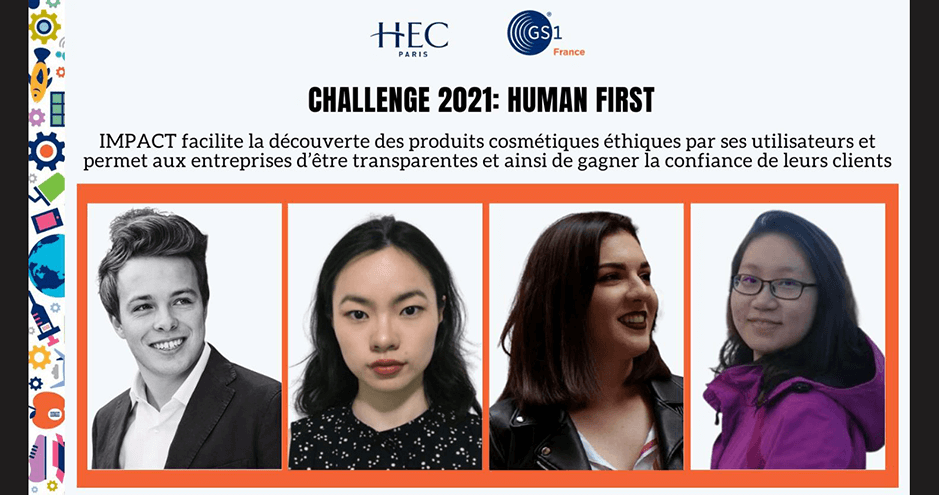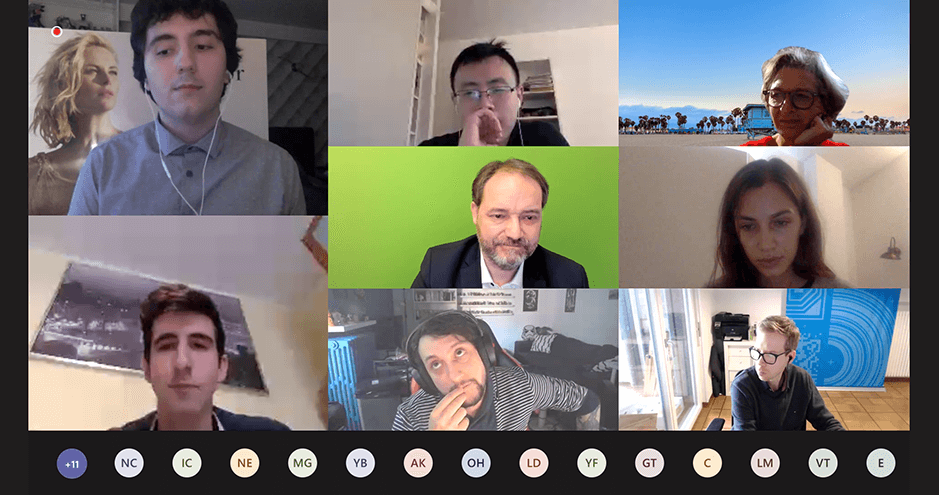Master Students Rise to GS1 Digital Link Challenge
25 Master students from HEC Paris and the e-artsup school for digital creation spent the past two weeks answering a highly technical GS1 France Challenge. The six teams each developed innovation use cases based on the Digital Link standard. This standard tries to answer the new information needs of customers facing the growing challenges of trust, choice, ethics and ecology.

The GS1 Digital Link standard extends the flexibility and power of the numbers we all see beneath barcodes, called GS1 identifiers, in ways few imagined a decade ago when looking into the future of retail. With over 5 billion barcodes scanned every day on this planet, this Digital Link is creating what one critic called “a paradigm shift in connecting the world of things”. “That means,” writes its promoters, “that GS1 identifiers… strengthen brand loyalty, improved supply chain traceability information, business partners APIs, patient safety information and more.”
But how can this quantum leap in technology remain human-centric? This was the gauntlet thrown down by HEC Paris academic Erwan Gringoire and Magali Granger, the newly-appointed product manager at the sponsors GS1 France. This Paris-based company has set up a Chair at HEC Paris and actively shares its knowhow on supply chain standards and digital content for omnichannel with the students. Gringoire and Granger challenged the 19 HEC and six e-artsup students involved to develop a case study based on the Digital Link standard which would help provide consumers with Digital Link information in B2B and B2C transactions. Due to the ongoing global health crisis, the six teams were forced to work together remotely. This included exchanges with students confined as far as in France, Morocco, Belgium and Italy.
High-level Student Contributions
Each team had half an hour to present their cases and answer probing questions from the five-person jury. The latter was comprised of a high pedigree mix of CEOs, CTOs and experienced engineers, including Mobilead director Laurent Tonnelier, GS1 France’s Secretary General Pernette Rivain and the cofounder of Pivot & Co, Guibert Tchinde. The teams proposed a diversity of human-centered solutions for burning societal issues including calls for recycling luxury items, the struggle to improve consumer trust in goods, harmonize transport services in order to fight food wastage, the reduction of the environmental cost of the fashion industry, etc.
“We must first applaud the hard work you have all put in,” said jury spokeswoman Pernette Rivain, before declaring the winner. “This was not an easy Challenge to tackle, and we saw the engagement you all put in. In general, the presentations were well organized, with smooth transitions and a high degree of professionalism. The research for each case study was thorough, allowing us to learn much useful information.” Team 3 was declared the winner of the Challenge with a project entitled IMPACT. This centered on trust in brands being eco-friendly, producing high-quality goods, treating their staff decently and supporting social causes. The four students mapped out the growing trends in an expanding market and focused on the Clean Beauty Movement. They outlined the contributions GS1 Digital Link technology can make as a “gateway to consumer information.”

